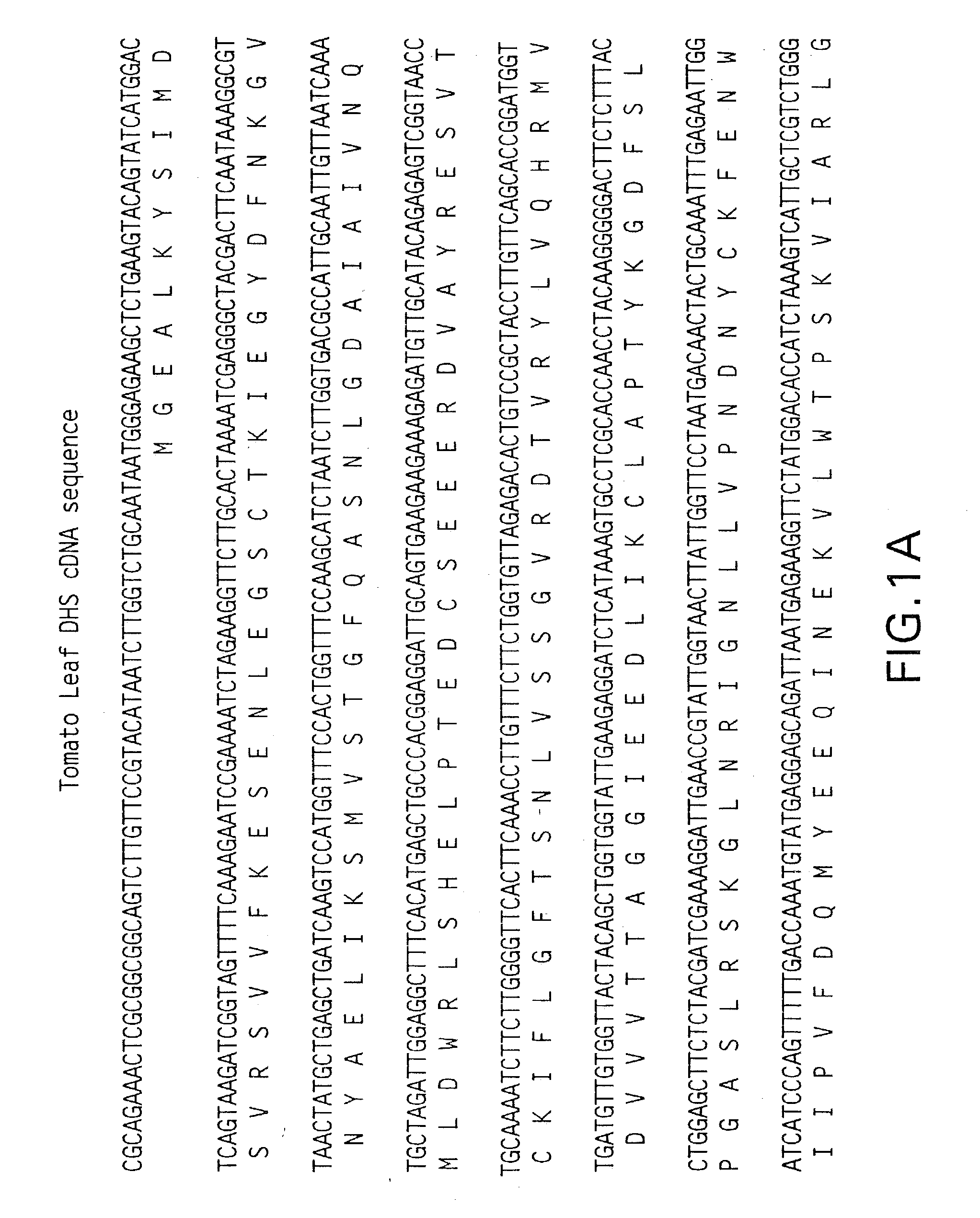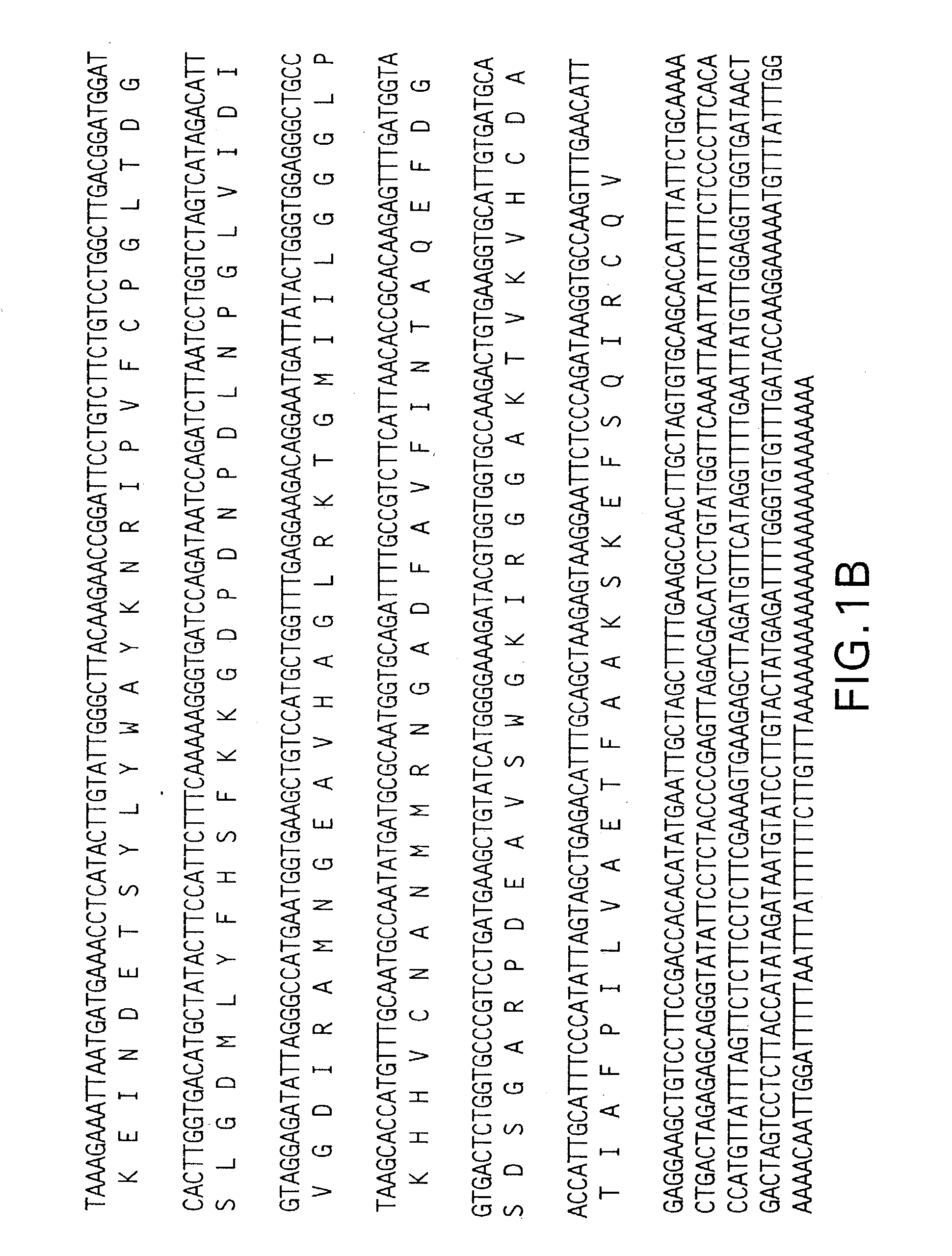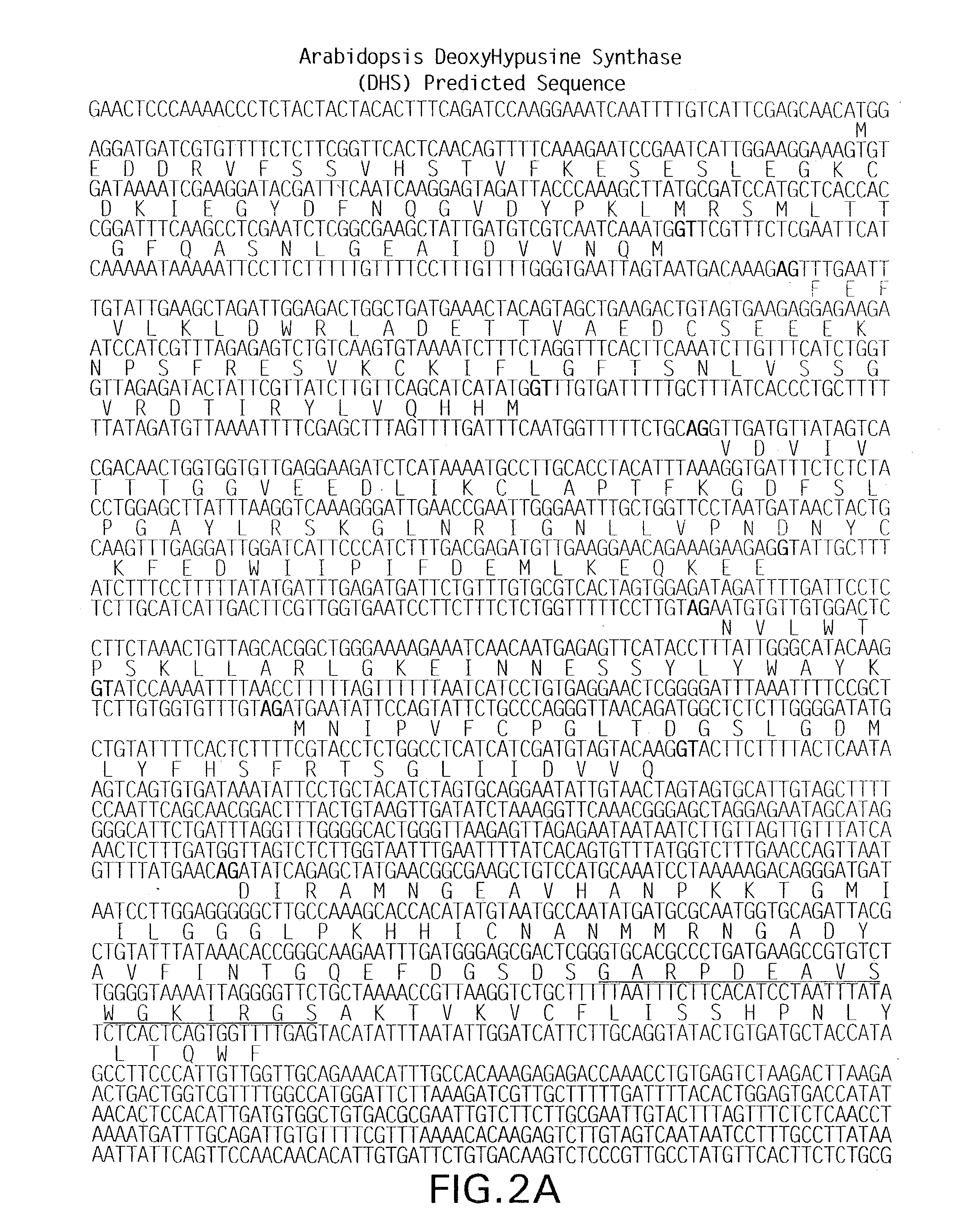DNA encoding a plant deoxyhypusine synthase, a plant eukaryotic initiation factor 5A, transgenic plants and a method for controlling senescence programmed and cell death in plants
a plant eukaryotic initiation factor and deoxyhypusine synthase technology, applied in the direction of peptides, dna/rna fragmentation, enzymology, etc., can solve the problem of no widely applicable method for controlling the onset of programmed cell death (including senescence)
- Summary
- Abstract
- Description
- Claims
- Application Information
AI Technical Summary
Benefits of technology
Problems solved by technology
Method used
Image
Examples
example 2
[0155] Sorbitol Induction of Tomato Senescence-Induced DHS Gene
[0156] Tomato leaves were treated with 2 M sorbitol in a sealed chamber for six hours. RNA was extracted from the sorbitol treated leaves as follows.
[0157] Leaves (5 g) were ground in liquid nitrogen. The ground powder was mixed with 30 ml guanidinium buffer (4 M guanidinium isothiocyanate, 2.5 mM NaOAc pH 8.5, 0.8% .beta.-mercaptoethanol). The mixture was filtered through four layers of cheesecloth and centrifuged at 10,000.times.g at 4.degree. C. for 30 minutes. The supernatant was then subjected to cesium chloride density gradient centrifugation at 26,000.times.g for 20 hours. The pelleted RNA was rinsed with 75% ethanol, resuspended in 600 .mu.l DEPC-treated water and the RNA precipitated at -70.degree. C. with 0.75 ml 95% ethanol and 30 .mu.l of 3M NaOAc. Ten .mu.g of RNA were fractionated on a 1.2% denaturing formaldehyde agarose gel and transferred to a nylon membrane. Randomly primed .sup.32P-dCTP-labelled full l...
example 3
[0159] Induction of the Tomato DHS Gene in Senescing Flowers
[0160] Tight flower buds and open, senescing flowers of tomato plants were harvested, and RNA was isolated as in Example 2. Ten .mu.g RNA were fractionated on a 1.2% denaturing formaldehyde agarose gel and transferred to a nylon membrane. Randomly primed .sup.32P-dCTP-labelled full length DHS cDNA (SEQ ID NO.1) was used to probe the membrane at 42.degree. C. overnight. The membrane then was washed once in 1.times.SSC containing 0.1% SDS at room temperature for 15 minutes and then washed three times in 0.2.times.SSC containing 0.1% SDS at 65.degree. C. for fifteen minutes each. The membrane was exposed to x-ray film overnight at -70.degree. C.
[0161] The results are shown in FIG. 6. As can be seen, transcription of DHS is induced in senescing flowers.
example 4
[0162] Induction of the Tomato DHS Gene in Ripening Fruit
[0163] RNA was isolated from breaker, pink and ripe fruit as in Example 2. Ten .mu.g RNA were fractionated on a 1.2% denaturing formaldehyde agarose gel and transferred to a nylon membrane. Randomly primed .sup.32P-dCTP-labelled full length DHS cDNA (SEQ ID NO.1) (FIG. 1) was used to probe the membrane at 42.degree. C. overnight. The membrane then was washed once in 1.times.SSC containing 0.1% SDS at room temperature for 15 minutes and then washed three times in 0.2.times.SSC containing 0.1% SDS at 65.degree. C. for fifteen minutes each. The membrane was exposed to x-ray film overnight at -70.degree. C.
[0164] The results are shown in FIG. 7. As can be seen, transcription of DHS is strongest in ripe, red fruit just prior to the onset of senescence leading to spoilage.
PUM
 Login to View More
Login to View More Abstract
Description
Claims
Application Information
 Login to View More
Login to View More - R&D
- Intellectual Property
- Life Sciences
- Materials
- Tech Scout
- Unparalleled Data Quality
- Higher Quality Content
- 60% Fewer Hallucinations
Browse by: Latest US Patents, China's latest patents, Technical Efficacy Thesaurus, Application Domain, Technology Topic, Popular Technical Reports.
© 2025 PatSnap. All rights reserved.Legal|Privacy policy|Modern Slavery Act Transparency Statement|Sitemap|About US| Contact US: help@patsnap.com



